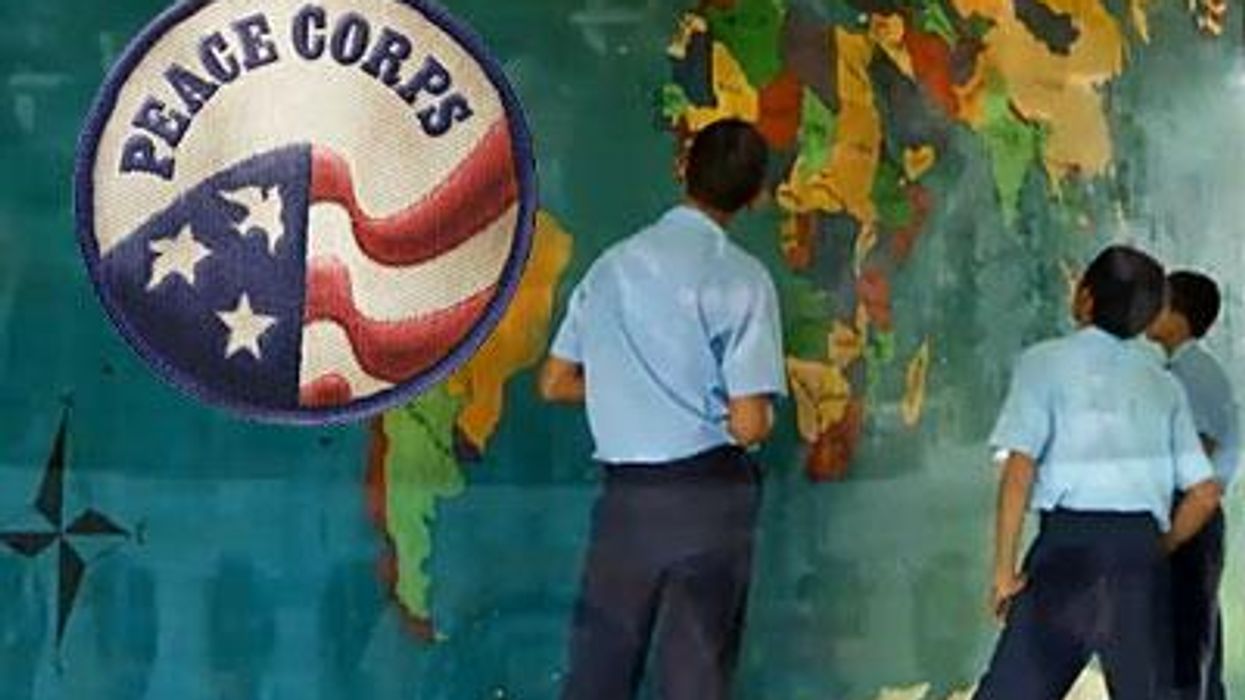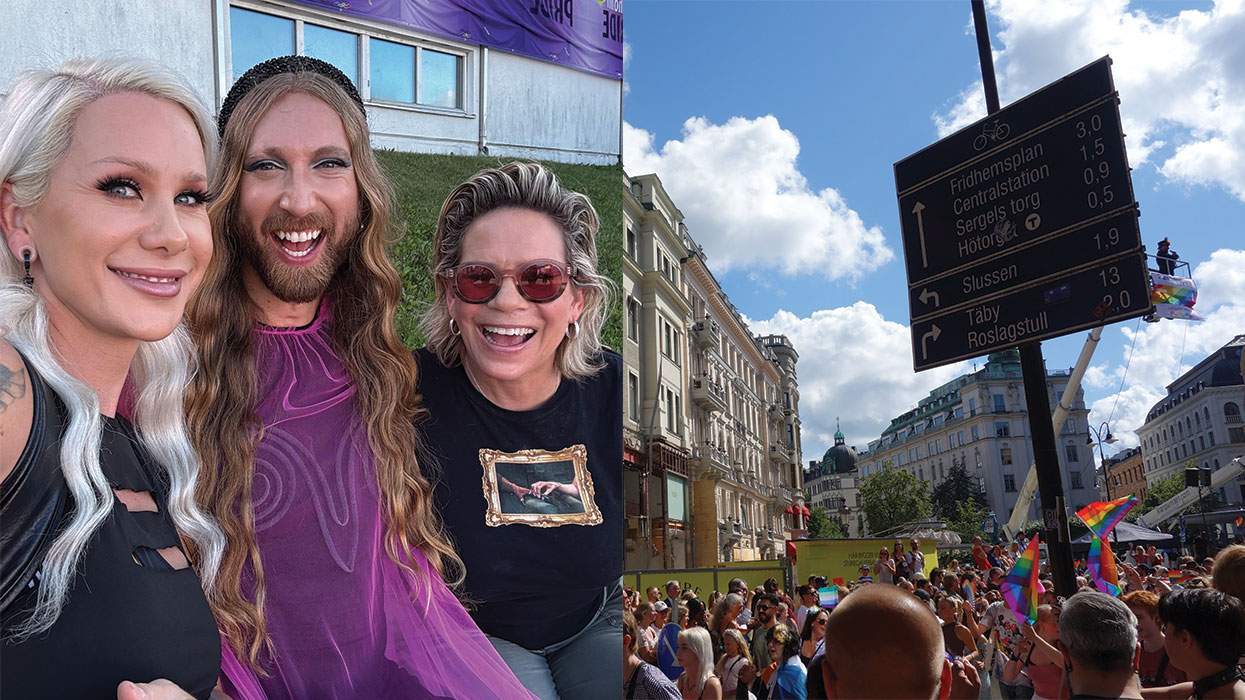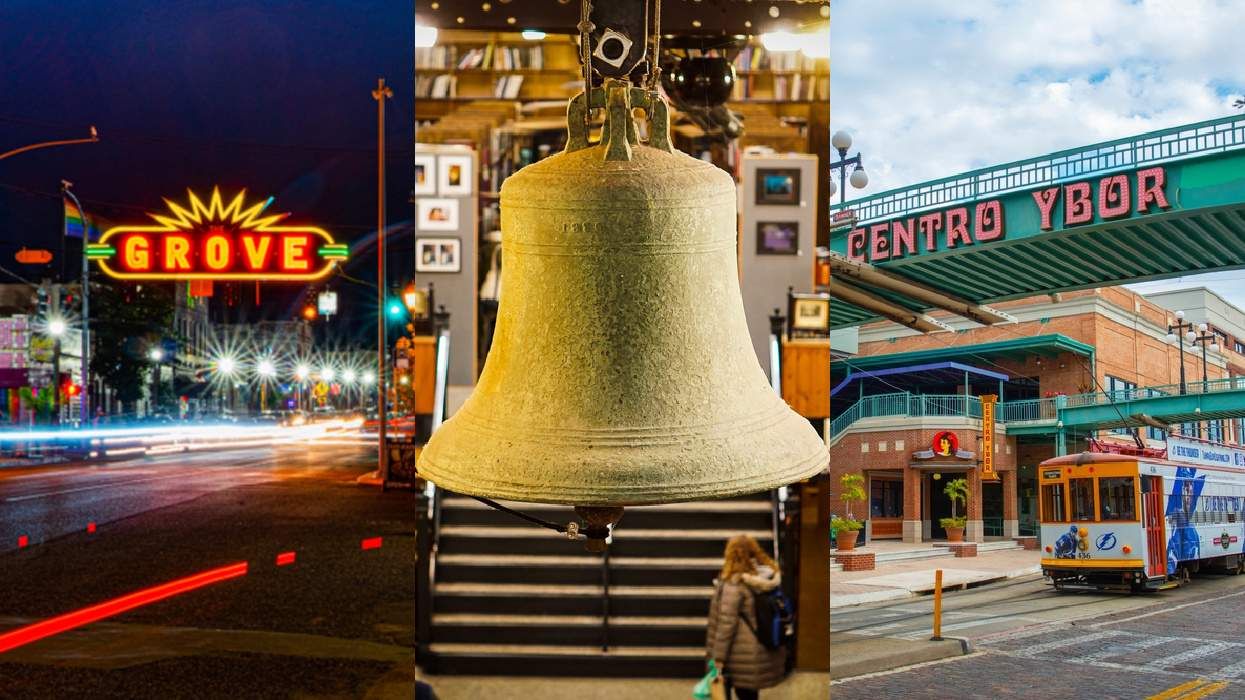In yet another step forward for LGBT rights in the United States, the Peace Corps announced Tuesday that it will allow same-sex couples to serve together beginning this year.
The change in policy came after President Obama encouraged federal agencies in 2009 to include LGBT employees in whatever way they can.
"The Peace Corps has long looked to expand opportunities to serve and reflect the diversity of the United States in its volunteers abroad," says Shira Kramer, press director for the organization.
The process for accepting same-sex couples will be similar to that used for heterosexual married couples, she says.
"The Peace Corps will only consider placement of same-sex couples in countries where homosexual acts are not criminalized," says Kramer. "There are many factors that affect ultimate placements, including applicants' overall competitiveness, program availability, departure dates, medical accommodations, and safety."
Each partner's skills will be assessed, and then Peace Corps will find a place that needs the skills of both. Depending on their medical clearance, the volunteers will be placed in a country and receive the same benefits (health care, housing, and stipends) as married couples. Only 10% of current assignments are filled by married couples serving together.
"Because couples placements require matching the skills sets of both individuals, there are fewer assignments available for couples than for single applicants," Kramer says.
"Peace Corps field staff will receive training to support same-sex couples that addresses safety and security issues, host family preparation, job assignments, and available resources," she adds.
The same-sex pair will sign an affidavit before leaving for service that will verify their relationship.
For returned Peace Corps volunteers, the news came as a welcome surprise Tuesday morning as the press release spread among volunteers on social media such as Facebook and Twitter.
Serving in the Peace Corps has always been a bit different from other Department of State jobs.
Unlike embassy workers or military personnel, Peace Corps volunteers live at a host site, usually a small village, as part of the community, doing all the same tasks as their neighbors: washing laundry by hand, getting water from a well, chopping wood, and so forth. They don't have bodyguards, gated entrances, or closed-off communities of other expats to help them cope with being perhaps the only American for hundreds of miles. So the job usually requires a great deal of flexibility and patience.
"As a volunteer, being able to have a partner there on site would've made the experience much different," says returned Peace Corps volunteer Alia. "The Peace Corps staff advised all LGBT volunteers to stay in the closet. That would have been much less lonely to do that with a partner."
Alia, who served two years as an English teacher in Ukraine, says she never felt unsafe as a lesbian during her time as a volunteer but knew that some others who "looked" gay ran into trouble. She did notice, though, that understanding among the Peace Corps staff did shift after training, and they were able to give more useful, accurate advice to volunteers.
Todd Harwell, a current volunteer in Peru, said he and his boyfriend (also a volunteer in Peru) always assumed that service for same-sex couples wouldn't happen until same-sex marriages were recognized federally. The news has the pair thinking about the future and possibly serving again, this time as a couple.
"We realize and acknowledge how lucky we are that we found each other in this crazy life that we lead, and our sites are relatively close," says Harwell, who lives seven hours away from his boyfriend. "But the opportunity to serve together as partners seemed like a future fairy tale."
Harwell notes that although he has a lot of contact with his boyfriend via cell phone, married straight couples have the benefit of face-to-face time together. When it comes to safety, he says, the Peace Corps would have to do take extra steps, but he's not worried about local reaction.
"I would certainly feel safe, and it would be incredible emotional support to be with my partner if an uncomfortable situation or reaction did arise," he says. "I'm sure there would be some community members that would be unaccepting of us, but you have that in every part of the United States as well."
"I felt that I needed to be cautious, but I did not feel unsafe," says returned volunteer Thomas Lawson. "I lived in a small, conservative town in a culture that does not talk about homosexuality. So, in my efforts to integrate, I did not talk about it."
However, staying in the closet was one of the more difficult adjustments Lawson made during his service in Ukraine. "I am more than a gay man, but I am a gay man." he says. "And if you do not see my gayness, you do not see me."
To avoid questions about his relationships, especially whether he had a girlfriend, one of the Peace Corps staffers taught him how to make it a joke by using the phrase "Nemaie, ne khochu, ne treba!" (Translation: "Don't have, don't want, don't need!") But while in the regional capital, Sumy, Lawson was out, and worked with organizations on an LGBT awareness and empowerment campaign.
Despite the step forward, the future for LGBT Peace Corps volunteers is hard to predict. In an organization that requires so much flexibility, how will individual couples deal with their site? Come out? Stay in the closet?
No matter what, though, volunteers are in agreement -- there's no substitute for support from a loving partner.
"As long as we could serve and live together, we would be happy," says Harwell. "Peace Corps requires a large amount of flexibility, and I'm curious to see how much flexibility will be asked and/or required of same-sex couples."
As for the number of potential LGBT volunteers interested in serving as couples, Kramer says, "We will have to wait and see, but the agency has recognized an interest among prospective volunteers."
It will take some time and work, but current and returned volunteers seem optimistic about the policy change -- even if it means being flexible with the definition of their relationships.
"There are downsides for everyone serving in the Peace Corps," says Lawson. "Compared to bucket baths and hand-washing your laundry, though, introducing your partner as your 'friend' does not seem like such a biggie."
Katie Peoples is a freelance writer in San Diego. Follow her @kpeeps and kpeeps.com.















Charlie Kirk DID say stoning gay people was the 'perfect law' — and these other heinous quotes
These are some of his worst comments about LGBTQ+ people made by Charlie Kirk.